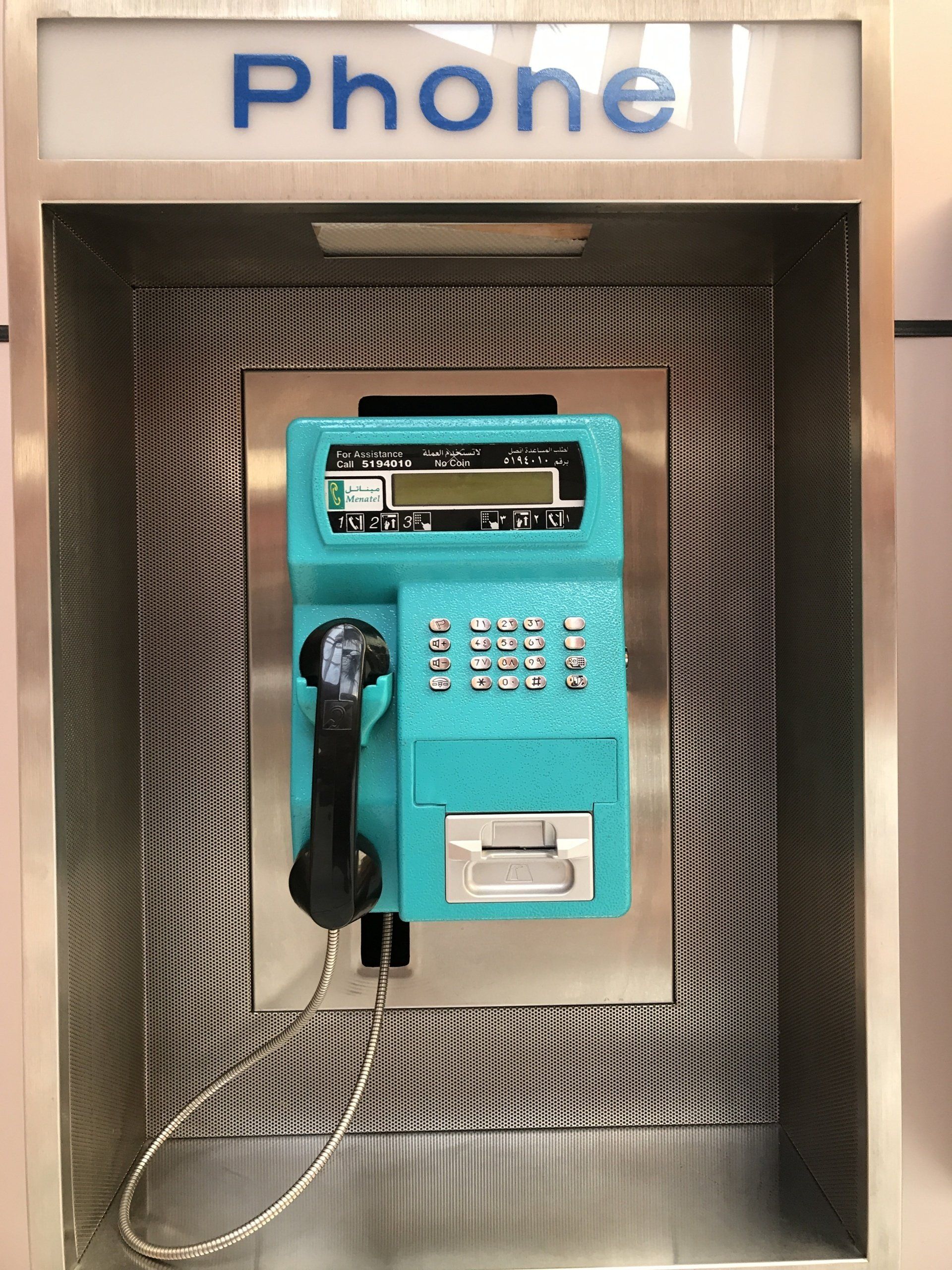How does a VoIP phone system increase productivity and reduce distractions?
by Jon Lober | NOC Technology
Those of us who can remember life prior to the dawn of the cell phone never put much thought into how any sort of telephone could increase our communication capacity beyond what it already had. However, within a few years of using cell phones, we could not imagine how we ever stayed in touch without them. We were then convinced (again) that phones had hit the ceiling of their productive potential – yet an even bigger jump was ahead. For the past 15 years, smartphones have absolutely revolutionized our capacity to communicate… and to find that restaurant where we are supposed to meet our client!

Now a similar revolution is sweeping through business phone systems.
With the advent of VoIP (Voice over Internet Protocol) technology, the way we use phones has drastically changed. VoIP phone systems have become increasingly popular due to their cost-effectiveness, flexibility, and scalability. However, many businesses are still reluctant to switch to VoIP, believing that traditional phone systems work just fine.
This is true – but is also true that a landline works just fine, you don’t really need a cell phone. Today, we are going to take a look at how a VoIP phone system can increase productivity and reduce distractions around your office.
What is a VoIP Phone System?
A VoIP phone system uses the internet to transmit voice and data. Instead of sending analog signals over copper wire like traditional phones, it converts analog audio signals into digital packets that are transmitted over the internet. Unlike traditional phone systems, which use a dedicated phone line, VoIP phones use the same network as your computer. This makes it easy to add new phone lines, scale up or down as needed, move back and forth from “in office” to “home office,” and use features such as video conferencing and instant messaging.
How Does VoIP Increase Productivity?
1. Remote working
VoIP phone systems make it easy to work remotely. This is the number one reason that most people reach out to us for help with switching to VoIP. With a VoIP phone, you can make and receive calls from anywhere with an internet connection. This means that employees can work from home, on the go, or in another country without any disruptions to their work. Depending on how you prefer to work, this might involve a “soft phone,” a “hard phone,” or both.
If you know that you will often be working from the same place (be it at home or at an office desk) and you prefer to stick to a traditional, physical phone on your desk, you can do so. This is what we call a “hard phone.” VoIP hard phones usually look and feel very similar to traditional landline desk phones, but often include a color screen that allows you to navigate through the variety of features that VoIP phones can offer.
However, if you work a hybrid format or if you often work on the road or in different locations, a “soft phone” might work better for you. Soft phones are essentially software that links your computer, smartphone, or tablet into your company’s phone system and allows you to use that device as a phone. This means that your chosen device will ring when someone dials your work phone number or extension.
If you like both ideas, a VoIP expert can even set up your VoIP phone system to ring the hard phone at your desk first before forwarding the call to your soft phone, or you can have the call go to all devices simultaneously for you to answer at your convenience.
2. Integration with other business tools
Wouldn’t it be nice if you could just click “call” on that phone number in Salesforce or at the bottom of that e-mail?
With VoIP systems, you can.
VoIP phone systems can be integrated with other business tools such as email, calendars, and CRMs (like Salesforce, Microsoft Dynamics, and HubSpot). This means that you can make and receive calls, access voicemail, and send messages without leaving the application you are working in.
3. Call routing
Imagine a potential client has set aside the afternoon to make some inquiry calls to a list of providers that he has compiled. When he dials your business, he gets a busy signal. He scratches the name of your business off his list and moves onto the next provider – who does pick up.
This nightmare scenario plays out frequently on traditional landlines. With VoIP however, you can easily choose how you want to direct incoming calls. VoIP phone systems allow for intelligent call routing, which means that calls can be directed to the right person based on their location, availability, and expertise. If the front desk cannot answer a call, customers can be transferred automatically to someone else who is available. With VoIP, customers are not left waiting on hold, and employees can focus on their core tasks.
4. Voicemail transcription
VoIP phone systems can transcribe voicemails into text, which means that employees do not have to spend time listening to long voicemails. Instead, as soon as a voicemail is recorded, a VoIP system can send an automatic email with a written transcription of the voicemail. Employees can then quickly read the transcription and respond accordingly.
5. Multiple ways to connect
VoIP phone systems offer a variety of advanced calling features on both hard phones and soft phones. Instead of simply providing audio service, VoIP also supports texting, video, and conference calls all on the same system. This means that employees can easily communicate with colleagues, customers, and providers according to their preferred communication method without needing to use a variety of software.
How Can VoIP Reduce Distractions?
1. Do not disturb
VoIP phone systems offer a "Do Not Disturb" (DND) feature, which means that employees can turn off their phones during important meetings or when they need to focus on a task. This feature helps reduce distractions and allows employees to focus on their work. By utilizing the advanced call routing features that we discussed above, you can automatically route incoming calls to your voicemail or to a colleague when you are in DND mode.
2. Calendar Integration
As we mentioned in the productivity section above, VoIP phone systems can integrate with a variety of business tools – including your calendar. By combining calendar integration and DND settings, you can configure your phone to switch modes based on your availability status. For example, you can set your phone to automatically switch to DND mode when you are marked as "busy" on your calendar – forwarding all calls during this period to voicemail or a colleague. This takes the hassle out of manually turning on DND mode and ensures that you are not interrupted during crucial tasks.
3. Call blocking
VoIP phone systems also allow for automated call blocking. This means that you can block calls from telemarketers or other unwanted callers that take your attention away from the task at hand. This reduces distractions and ensures that you are not interrupted by unwanted calls.
4. Advanced call filtering
VoIP phone systems offer advanced call filtering, which means that incoming calls can be directed to the right person based on their location, availability, and expertise. These settings can be very simple; for example, you can automatically send all calls to voicemail after a certain hour. However, you can also be very specific with your configurations. If you want to ensure that all incoming calls from existing clients go directly to the specific account manager that is familiar with their needs, you can do that. This reduces distractions and ensures that others are not interrupted by irrelevant calls.
5. Call recording and transcription
VoIP phone systems offer call recording features, which means that calls can be recorded for quality assurance or training purposes. This reduces distractions since employees do not have to take notes during calls and ensures that important information is not missed. Some VoIP systems also offer transcription of phone calls. This allows you to create a database of call transcripts that you can then search for key words or analyze to determine common requests or call types.
Stepping beyond traditional phone service
The invention of the telephone catalyzed an unprecedented increase in our ability to communicate with one another. Conversations that would have previously taken days or weeks could suddenly happen within minutes. For many decades following that breakthrough, it seemed that the telephone had peaked in its potential to augment human communication at a distance. However, more gains were just around the corner.
As VoIP technology matures and comes into its own, businesses are recognizing its potential to improve the way that they work. It may seem daunting to consider a switch from the familiar service of a traditional phone system, but the gains in productivity – not to mention the cost savings – provided by VoIP, mean that it is at least worth considering.







